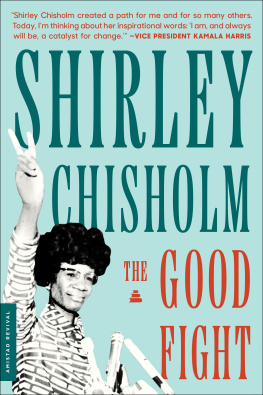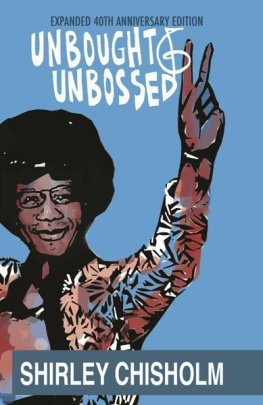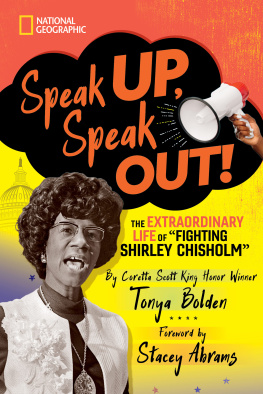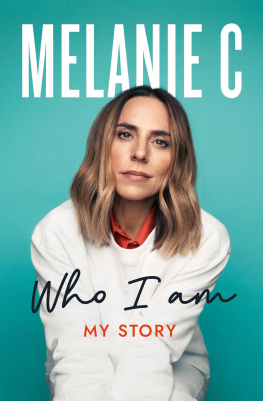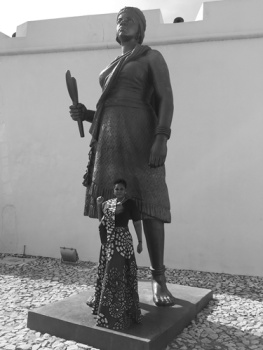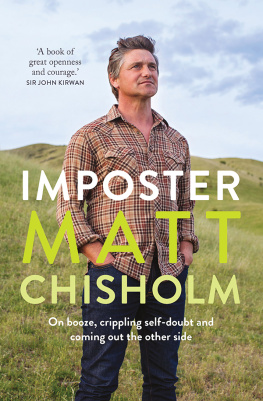O NE OF THE most dismaying aspects of politics and public life in America today is the increasingly closed nature of the entire political process, particularly at the highest level. We hear much these days about the growing power of the Presidency at the expense of Congress, the lack of White House communication with the public, the virtual end of Presidential press conferences, and the secret bargaining and trading of favors in the back rooms of the powerfulall of which have repelled many people in the country. The low voter turnout in the November 1972 elections was a disturbing barometer of the air of apathy and resignation which permeates the nations political atmosphere in this new year, a terribly unhealthy sign in a democracy.
Sorrow over the deaths of two former Presidents and somber relief over the apparent halt in our massive military intervention in Southeast Asia do not seem enough to enable us to stop and blink and perhaps turn our eyes from the pastso much of which has shocked and confused Americansin hopes of starting anew and refocusing our hopes and energies toward the urgent needs of our nation.
Yet there are nonetheless positive undercurrents coursing through the lifeblood of America. A strong economic performance seems imminent, hopefully promising more jobs. The recent Supreme Court decision on abortions gives me confidence that there are indeed men of reason and basic goodwill who are prepared to make terribly difficult and profound social and moral decisions despite sharp and highly emotional opposition. Furthermore, the election of a Democratic Congress in 1972 indicates to me that most Americans want a counter to the administration and have not forgotten those humane, progressive values which some feared were lost forever as our technological society rolled on.
In response to public demand, more light is being shed on our political processon campaign financing, on convention delegate selection, and on Congressional committee operations. The recent decision by a Democratic caucus of the House to reform the seniority system may well have a significant impact on the ability of the House to respond more quickly and effectively to local and national problems.
I ran for the Presidency in order to crack a little more of the ice which in recent years has congealed to nearly immobilize our political system and demoralize people. I ran for the Presidency, despite hopeless odds, to demonstrate sheer will and refusal to accept the status quo.
It seems to me that a Presidential candidate can open the door a bit farther by discussing openly and frankly what transpired during his or her campaignthe pressures, the conflicts, the fears, the double crosses, the financial costswhile the campaign is fresh in the public mind and before the candidate reaches that autumnal time of life when the traditional memoir may be deemed suitable.
I therefore freely give my impressions of events and personalities as I perceived them during the 1972 Presidential primary campaigns. In so doing, I hope the public may better understand this grueling, often bewildering phase of our election system. Some readers may find their worst fears confirmed; others may feel compelled to participate themselves in some future campaign. Either way I feel that such a book may play a useful role in my continuing efforts to shake up our system.
February 1973, S.C.
I T WAS STRANGE that some of the people screaming the loudest were Wallace delegates with long red, white and blue neckties. One little white man kept jumping up and down; he didnt stop during the ten minutes it took for my acceptance speech. Little of the enthusiasm spread to the rostrum, though. Party chairman Larry OBrien and the other officers at the Democratic National Convention in July, 1972, were impassive. It was an odd contrast; I noticed it fleetingly as I walked to the microphone.
There was no speech prepared. I didnt need one, because there was only one thing for me to say: Brothers and sisters! At last Ive reached this spot! I dont remember my exact words. There are tape recordings somewhere, probably, for anyone who thinks the exact words matter. The placards waved, a band played, the hall was a stormy beach with waves made of people dressed in all colors, and their shouts were like the noise of an ocean. I had never seen a national convention session before except on television. State ones, yes. But the only convention I had gone to was the 1968 one in Chicago, and that was neither as a candidate nor as a delegate; when the session was nearly over I went to attend a meeting of the Democratic National Committee.
As I left my trailer behind the hall in Miami, surrounded by a ring of Secret Service men, I felt no excitement. Backstage, watching the scene on a television set until it was time to go on, I was still calm. But now this huge room was pulsing and jumping at me, so much more than I had expected. How long it went on, I could never tell. Even when I began to speak, they never really quieted down. If you had just landed from the moon, you might have thought that I was the conventions choice, not just a preliminary to the main event. I tried to focus on something and get myself together. People were leaving their seats, pushing through the chairs to the aisle below the speakers platform, where I stood behind a huge-seeming lectern. Almost everybody was applauding and cheeringeverybody except some of the McGovern delegates, who had contented themselves with a few claps. What I noticed most were the older black men and women. Some were crying, and their faces were so full of joy that they looked in pain. I thought I could read their lives experiences in their faces at that instant, and I know what it was they felt. For a moment they really believed it: We have overcome!
What I said that night was that most people had thought I would never stand there, in that place, but there I was. All the odds had been against it, right up to the end. I never blamed anyone for doubting. The Presidency is for white males. No one was ready to take a black woman seriously as a candidate. It was not time yet for a black to run, let alone a woman, and certainly not for someone who was both. Someday... but not yet. Someday the country would be ready. Those were the things I had been told, everywhere I went for ten months, even before I announced officially that I was a candidate, and everywhere I was asked the same question: But, Mrs. Chisholmare you a serious candidate? Each time, trying not to lose patience, I explained, and tonight I was explaining again.
Of course my candidacy had no chance. I had little money and no way of raising the funds it takes to run for high office. I had no big party figures supporting me. To the extent that they noticed me at all, the movers and shakers wished only that I would go away. A wild card, a random factor that might upset some detail of their plans, an intruder into the real contest among the white male candidates. Their response was ridiculein private, not in public, because a gentleman doesnt make fun of a lady and a politician doesnt want to risk losing the black vote. But their attitude came through clearly: treat her with respect, but of course you dont have to take her seriously. If they ever wondered why I was running, their explanation was usually Chisholm is on an ego trip.
So I did not devote my acceptance speech to a discussion of the issues. I had discussed the issues before. People hear about the issues from every politician who gets up on a stump. Theyve quit listening to the traditional speeches with the traditional promises. Fellow Americans, these are the great issues we must face. Fellow Americans, this is what I will do for you if you elect me. So whats new?

